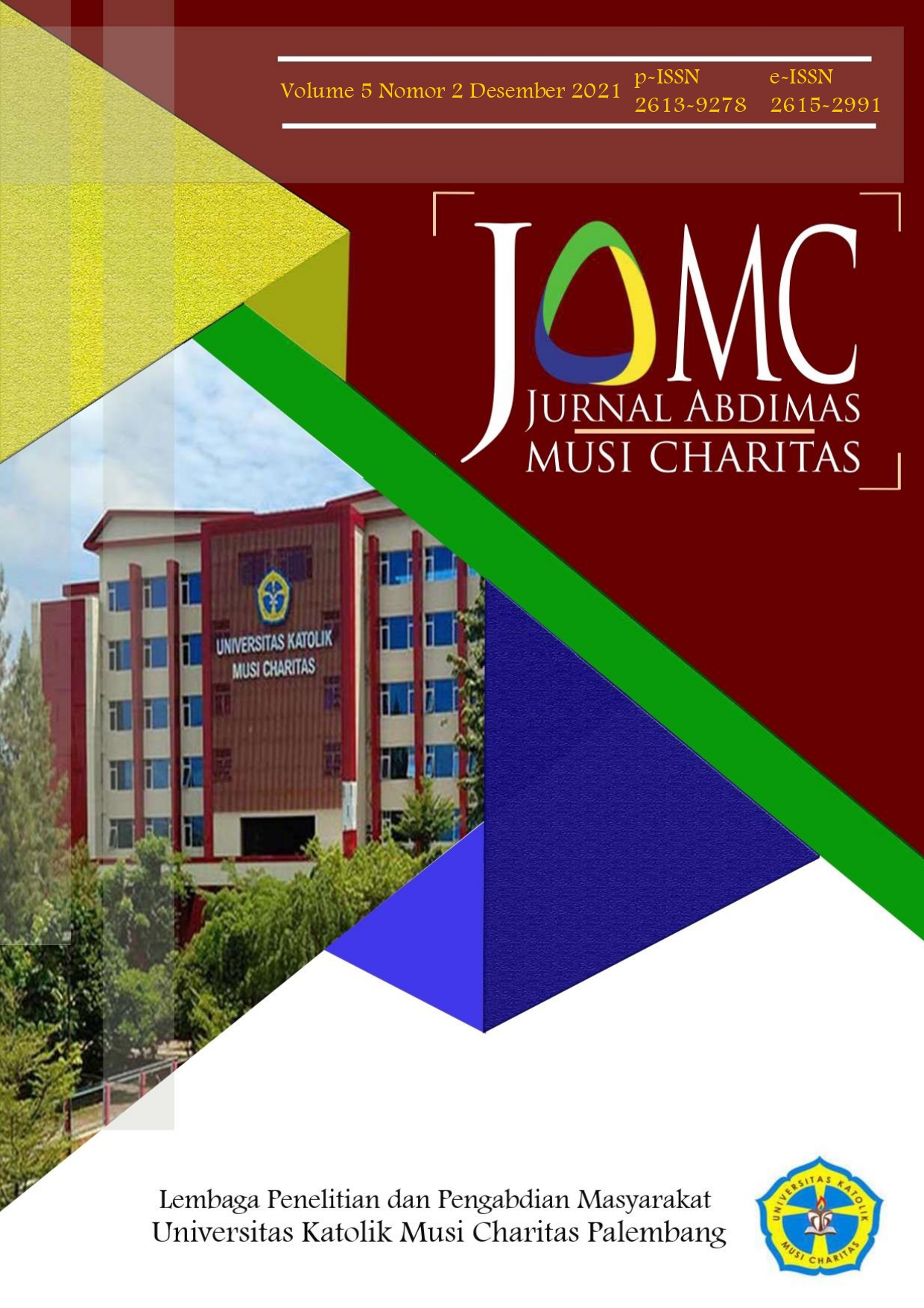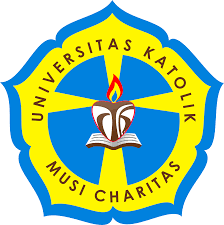Resiliensi Keluarga Melalui Pemberdayaan Ekonomi Peran Ibu Di Masa Pandemi
Abstract
ABSTRACT
The present pandemic has changed the global economic life. In the family level it results the decreasing family income. This situation weakens the resilience. Therefore. it is urgent to create new opportunities within the context of family. Family has played major role where the mother’s involvement is significant to respond the change and to creatively look for entrepreneurship opportunity. This community service aims at improving the family resilience through economic empowerment of mother’s role. The activity is divided into two sessions, namely: (1) Practical skills of child independence development; and (2) Practical entrepreneurship skills “how to make peach gum herbal drink”. Survey was conducted at the end of the activity. One-Sample Test was employed to measure means value of perceived-benefit, involvement and loyalty which is accounted for 4 (= Agree) (Sig. > 0.05). Procedures for Bivariate Correlation to measure the participation level was applied. The result shows significant correlation between Session Attractiveness (KTM) and Perceived-benefit (PMM) (0.548/Sig. 0.01), and between Future Intention (KKG) and Recommendation (KR) (0.447/Sig. 0.05).
Keywords: family resilience, entrepreneurship
References
Beatty, S.E., Homer, P. & Kahle, Lynn, R.
(1988) The involvement – commitment
model: Theory and implications. Journal
of Business Research, Vol. 16, No. 2, pp.
-167
Kementerian Ketenagakerjaa Republik
Indonesia (Kemnaker), 2020
Kimhi, S., Marciano, H., Eshel, Y &
Ardini, B. (2020) Recovery from the
Covid-19 pandemic: distress and
resilience. International Journal of
Disaster Risk Reduction, 50 (2020) pp. 1-7
Kinard, B.R. & Capella, M.L. (2006)
Relationship marketing: the influence of
consumer involvement on perceived
service benefits. Journal of Service
Marketing, Vol 20, No. 6 pp. 359-368
Long, W. (1983) The meaning of
entrepreneurship. American Journal of
Small Business, Vol. VIII, No. 2, Oct-Des.
, pp. 47-59
McMullan, R. & Gilmore, A. (2008)
Customer loyalty: an empirical study.
European Journal of Marketing, Vol. 42,
No. 9/10, pp. 1084-1094
Masten, A.S. (2018) Resilience theory and
research on children and families: Past,
present, and promise. Journal of Family
Theory & Review / Vol. 10, Issue 1 / pp.
-31
Prime, H., Browne, D.T. & Wade, M.
(2020) Risk and resilience in family wellbeing during the Covid-19 pandemic.
American Psychologist, Vol. 75, No. 5, pp.
-643
Puspitasari, D.C. (2012) Modal sosial
perempuan dalam peran penguatan
ekonomi keluarga. Jurnal Pemikiran
Sosiologi, Vol. 1 No. 2 November 2012
pp. 69-80
















_1.png)




